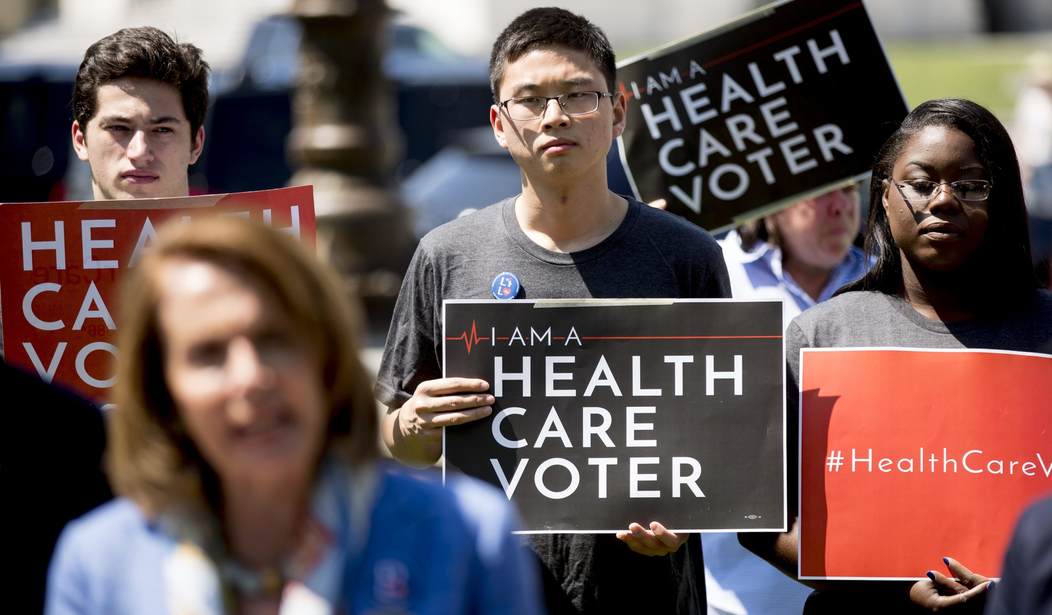It looks like some enterprising individuals have found a way to make the Affordable Care Act (ACA) more affordable — at least for themselves.
A new study reveals how they did it, and comes just in time to plan for next year when yet another round of absurdly hefty hikes in insurance premiums are already in the offing.
This year’s prices for silver-rated ACA plans, which provide neither the best nor the worst benefits, were up 32 percent versus last year to an average of $444 a month, according to data collated by the Robert Wood Johnson Foundation and the Urban Institute.
Next year the ACA, aka ObamaCare, will be a whopping 15 percent more expensive, according to the Congressional Budget Office.
That means the new 2019 rate for a silver plan would be $511 a month, or more than $6,000 a year for a single person.
However, the annual figure is only that high if you pay for all 12 months of insurance coverage. Not everyone does so. Some people pony up for just a few months of the year, new research shows.
What they have done is brilliant in its simplicity and perhaps diabolical, too. It goes like so: Enroll in an insurance plan and then time healthcare expenses for the first few months of the year, then after the treatments and procedures get completed ditch the plan by not paying the premiums.
“Following enrollment, we observe dramatic spikes in individuals’ health care consumption,” states the report, “Take-Up, Drop-Out, and Spending in ACA Marketplaces.” Experts at Stanford University and NYU Stern conducted the study and wrote the paper.
So-called discretionary medical attention can be timed to coincide with insurance coverage, whereas urgent trauma treatment cannot.
“We also document widespread attrition, with more than half of all new enrollees dropping coverage before the end of the plan year,” the report continues.
In other words, many people in the pool of those studied took the insurance coverage and then went on a mad spree seeking medical treatment. Once the medical matters got dealt with, then they dropped their insurance plans.
The data support the idea that some people want to cram in as much healthcare spending as they can as quickly as possible. The “sharpest” dropoff in insurance coverage came after a mere one month into the calendar year.
The data for the study focused on 850,000 households in California and looked at income, insurance premiums and healthcare spending.
The study authors found that dropout rates were high across the board almost regardless of income level. The researchers looked at the attrition of plan participants who enrolled through the individual exchanges in the first year they operated, 2013. By the end of 2014 half of those with the lowest incomes, under $20,000 a year, left the plan. People who earned more dropped out of ObamaCare at a rate “only slightly” less than did the poorest, the report says. In other words, dropping insurance was widespread across all income levels.
The researchers say that the practice of dropping coverage is catching on like an infectious disease.
“Dropout rates appear to rising over time across each enrollment period of the ACA,” the report says, indicating that more people are expected to do so in the future.
Of course, this practice presents a problem to insurance companies, which need people to pay premiums even when they don’t go to the hospital or see the doctor.
If people consume more dollars of healthcare than they pay in premiums, then someone else is stuck with the bill.
Much of the financial burden falls on the people who pay their premiums 12 months of the year, the report says.
In short, anyone who buys their own health insurance and pays each month should expect ever-increasing insurance costs.









Join the conversation as a VIP Member